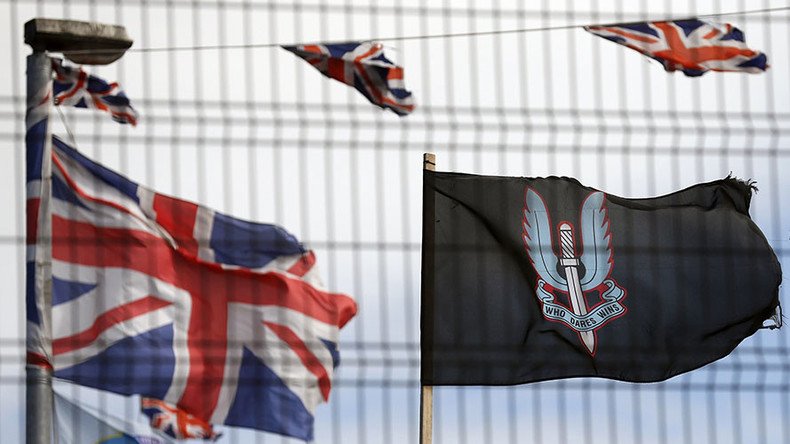Secrecy policy over SAS ops backwards & damaging – report

Britain’s policy of not commenting on Special Forces operations is years behind other Western nations and could harm the UK’s democracy and foreign policy, a new study claims.
The study by the Sustainable Security think-tank examines the British policy of ‘no comment’ on covert military operations and compares it to the practice of other Western nations.
Author Emily Knowles warns that the long-standing UK policy is badly out of date and has the triple impact of diminishing the accountability, effectiveness and legitimacy of UK Special Forces operations.
On the issue of accountability, Knowles says that it is self-evidently “impossible to hold the government to account over actions it won’t disclose.”
She argues that effectiveness may also be damaged by the fact that, in Libya for example, UK troops appear to be secretly aiding anti-jihadist militias which themselves oppose the UN- and UK-backed unity government. Blanket secrecy means such operations have received inadequate debate and attention.
Legitimacy can be undermined by the assumption that unreported operations are carried out in legal grey areas.
There is little public understanding of, or clarity over, how SOF are supposed to operate when they are deployed,” Knowles claims.
“This feeds an assumption that they are specifically used for illegal and otherwise illegitimate operations.”
Knowles also compares UK blanket secrecy to the relative openness of Western allies on the issue of elite troops.
“In contrast to the UK’s blanket refusal to comment on the deployment of its SOF, it is not unusual for official spokespeople from the American, Australian and Canadian administrations to publicly announce details of SOF deployments,” she says.
She cites repeated occasions when figures like US President Barack Obama announced details of such operations, arguing that while there is “still a high degree of institutional opacity surrounding allies’ use of SOF” there is no official “blanket refusal to engage the public over all SOF activities that characterizes the UK’s approach.”
She concludes that reflexive secrecy has very damaging implications at a time when warfare is shifting increasingly towards the clandestine.
Government and MoD policy has long been that no comment is made on Special Forces activities on a number of grounds. One reason is a fear that the effectiveness of Special Forces operations could be compromised by publicity. Concerns over the identity and safety of troops and their families have also been cited in the past.












